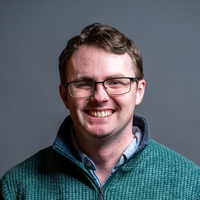What do we actually want to happen in Israel and Palestine?

The following article represents the views and thoughts of its author.
After the initial shock, comes the reality. It is now almost two weeks since the world awoke in horror to read headlines of Hamas’ incursion into Israel and the brutal murder of more than 1,400 civilians and soldiers.
It is remarkable how quickly we settle into a new acceptance of how things are. War has ravaged Ukraine now for more than a year and yet now we barely speak of it. And within a fortnight, we have just grown accustomed to daily headlines of bombings, deaths and violence dominating the BBC news feed.
The conflict is one which, in many ways, shows the difficulties inherent in almost any war.
Who is in the right? Well it goes without saying that the behaviour of Hamas is utterly horrific and inexcusable. And yet the geopolitical history of Israel and Palestine more broadly, particularly within the last hundred years, is incredibly complicated. For of course, it was only natural that those who were Jewish would wish to be (and in many cases, to return) in their ancestral home, the land of Abraham, Moses and David, particularly after having suffered such horrendous persecution from living abroad.
And yet it was also equally natural that the Palestinians (largely, though not exclusively, Muslims) could not simply put up with being displaced (in many cases, violently) from where they had been living in the interim either. Indeed, even after the formation of the modern nation-state of Israel in 1948, Palestinians living in Gaza (which had not previously been under Israeli rule) were suddenly left under the rule of a different nation after the unexpected success of the Israel Defence Forces in the 6-day war of 1967. In recent years, the Gaza Strip was deemed to be facing a “humanitarian crisis” by the United Nations, due to the Israeli government’s treatment of it.
So yes, Hamas’ evil behaviour is the trigger for this latest round of disputes. But in the long-history of Israel and Palestine, there is little black and white: it is predominantly shades of grey.
How should Israel respond? Again, almost everyone agrees that Israel has the right to defend itself (something I remain unconvinced that Jeremy Corbyn would have been willing to declare, had he become Prime Minister in 2019!). And yet - in an understandable bid to prevent escalation - in the West we have been very keen to say what Israel should not do. (Of course, when it was 9/11, America did many of the things it is proposing Israel shouldn’t do now!). What does a proportionate response look like? Nobody seems to know.
Israel has received much criticism already in the last few days for its bombing of Gaza, where more than 4,000 have now died. It has been condemned by more still for its cutting off of water and electricity, and for not (to date) allowing in humanitarian aid. But there are no simple solutions, as the reports of Hamas terrorists carrying first aid kits from the United Nations during their assault into Israel prove. (And indeed, if one wanted to muddy the waters further, one could point out that Palestinian territories actually elected Hamas as their government back in 2006, before Hamas violently took over Gaza in 2007).
War is often indiscriminate in its effects. A bomb - whatever the intention of the person firing it - cannot distinguish between civilian and soldier, man and woman, terrorist and child. This was brought home painfully this week by the news that a bomb had fallen upon a Palestinian hospital building in which the Palestinians claim (though the number is disputed) that 471 people were killed. It was then reinforced by the way it became clear - after analysis - that the bomb had likely originally been fired by Hamas and had gone wrong.
And those effects are often far-reaching. I have been utterly horrified to read of the ways Jews around the world have experienced anti-semitism in the last two weeks. In London, hordes of protestors chanted “From the river to the sea, Palestine must be free”, the cry taken up by Hamas, whose stated goal is to literally exterminate Jewish people in Israel. In Sydney, last week, a group of Palestinian supporters chanted “gas the Jews.” Earlier this week, 2000 cultural figures including Tilda Swinton, Steve Coogan and Charles Dance wrote an open letter criticising “the cruelty inflicted on Gaza” and completely omitted the barbaric behaviour of Hamas on the people of Israel.
Within Britain, last year between 1 and 18 October there were just 15 cases of anti-semitism. This year, it is 218. (And for the sake of balance, the number of Islamophobic incidents has also risen substantially, from 42 to 101).
And so, as the world moves away from its initial shock at the Hamas attacks, its attention is now increasingly beginning to turn to what happens next.
Will Israel actually launch a ground-invasion of Gaza? Are we in for a long protracted war? How will the surrounding nations in the Middle East respond? What will our own government do?
Much ink has been spilled already in response to the above questions, and others are far better placed than I to comment on them. As already mentioned, there are no easy solutions, and I’m certainly not going to come down in favour of one on-the-ground solution over another.
But speaking as a Christian who is merely trying to work out what he thinks, and who is pondering how the Bible might speak into a situation which is replete with such brokenness and pain, here are three things which I long to see, and which I will myself be praying for as the conflict continues.
Peace
"Pray for the peace of Jerusalem: “May those who love you be secure. May there be peace within your walls and security within your citadels.”"
Warfare is not part of God’s good plan for humanity. Neither is strife, violence or murder. Within creation, everything was “very good”, including the relationships between man, woman and God, but the effects of the Fall in Genesis 3 were quickly felt; it is just one chapter later that Cain murders Abel. The first war comes in Genesis 14, when an alliance of kings attacks Sodom and takes Lot prisoner, and Abraham fights to rescue him.
War became a fact of life for Israel as the Old Testament progressed, whether it was in conquering Canaan, or being themselves attacked by one empire after another. At times God even led his people into battle as ‘The Lord of Hosts’.
And - although Christians have different consciences on this - there are times when I would personally believe that going to war is the right thing to do. The phrase ‘just war’ does not appear within Scripture, but the concept was developed by Augustine and developed by Thomas Aquinas in the Middle Ages, as a means of establishing when warfare was a morally right thing according to Biblical principles. For what did it mean to ‘love your neighbour’ if your neighbour was Poland, and they had just been invaded unprovoked by Nazi Germany? Or one thinks of the Rwandan genocide in 1994, when up to 1 million people were massacred, and up to 500,000 experienced sexual assault in a period of just 100 days, and not a single country intervened.
And yet the trajectory of the universe does not bend towards war, but towards peace. Evil will be overcome with good. War will be overcome by peace. Death will be overcome by life. We look ahead to the vision Micah saw, when “Nation will not take up sword against nation, nor will they train for war anymore” (Micah 4:3-4). Swords will be beaten into ploughshares, spears into pruning hooks, weapons won’t be needed any more. The instruments of death are transformed into the instruments of the field, instruments to bring life. Tears will be wiped away. Death and pain will be destroyed. The leaves of the tree of life will be for the healing of the nations.
If we want to see God’s kingdom come in Israel and Palestine, as it is in heaven, we must pray for peace. For we worship a King who came not with the sword, but on a donkey, who said “Blessed are the peacemakers”, and was himself “the Prince of Peace.”
Justice
“Let justice roll down like waters, and righteousness like an ever-flowing stream.”
The difficulty - and the danger - with advocating simply for peace, however, is that it does not adequately deal with the evil that has been committed or the pain that victims are feeling. Peace in and of itself, without an accompanying call for justice (whatever justice is) can too quickly become appeasement.
If, for instance, those commentating on the war between Ukraine and Russia were to simply call for peace and an immediate ceasefire without also calling for Russia to return its annexed territory and for Vladimir Putin to be condemned as a war criminal, they would rightly be condemned as appeasers. (It was this, of course, which was the fate of Neville Chamberlain, whose attempts at keeping peace with Adolf Hitler were doomed to failure.)
Peace must be accompanied by justice. And just as the trajectory of our universe bends towards peace, so it does too towards justice, as Martin Luther King himself famously recognised.
Of course, in a historic conflict which has so much grey, and has had so many twists and turns, it is difficult to know what true justice would look like. For all the talk of two-state solutions and the rule of international law, only God himself knows what a truly just solution would be in this particular circumstance, and all we can really do is pray that he brings it about.
But justice is an integral part of God’s new creation, as evil will one day be judged and will be thoroughly and finally dealt with. And even if a war criminal does escape justice in this life, they cannot escape it in the next, as they stand before the Righteous Judge of all. And as we reel from the horrors of Hamas beheading babies and effectively using the Palestinians in Gaza as human shields, I can only thank God that one day he will hold them to account.
Grace
“You have heard that it was said, ‘Love your neighbor[i] and hate your enemy.’ But I tell you, love your enemies and pray for those who persecute you, that you may be children of your Father in heaven.”
How do you end a conflict which has lasted for generations? How can people co-exist who have spent their lives fearing, fighting and even killing one another? How do you break the cycle of violence, rather than merely seeking revenge?
One of my favourite stories has always been the tale of the Trojan War, one of the earliest and deepest stories ever told, as the combined armies of Greece took on the might of the city of Troy.
Within the traditional telling, the Trojan prince, Hector kills in battle the cousin of Achilles, Patroclus. The next day Achilles hunts Hector down and takes his revenge. In one modern retelling, Hector’s own cousin, Briseis says to Achilles:
“You lost your cousin. Now you have taken mine. When does it end?”
Achilles’ response provides an insight into human nature: “It never ends.”
Ultimately, the tools and technology used in warfare may have changed in the last 3000 years, but the human heart remains just the same.
We could so easily see that conversation today: “Hamas has killed 1000 Israeli citizens. Now Israel has killed 4000 Palestinians. When does it end? It never ends.”
Except there was one person who didn’t seek revenge. He lived in the very region which is now the epicentre of war today.
Jesus Christ did not cry out for vengeance against the man who betrayed him, the disciples who abandoned him, or the soldiers who crucified him. Instead, he loved them all. “Father forgive them, for they do not know what they are doing”, he said.
How do you end a conflict which has lasted for generations? It can only happen by grace, and by forgiveness.
This may feel like the most unlikely scenario of all. And I really have no idea how either Israeli or Palestinian officials would - or at this moment, given the emotions involved, even could - do it.
But we know that with God, all things are possible, and it is my prayer that ultimately grace and forgiveness would win the day, as God’s kingdom comes in Israel and Palestine, as it is in heaven. For just as the trajectory of the universe bends towards both peace and justice, so too, astonishingly, it bends towards grace.






